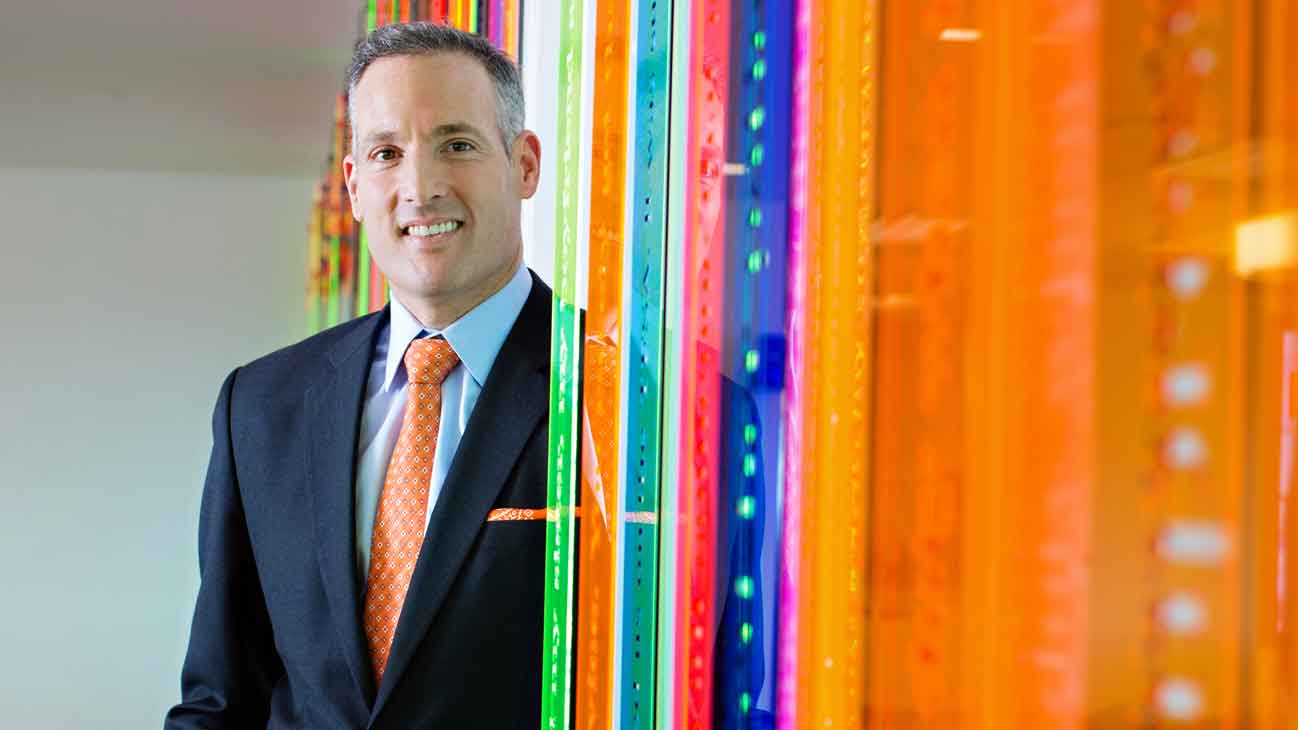Peter Aceto is a passionate leader. As the President and CEO of Tangerine, he stands for more than a leader of a bank: his goal is to change the conversation about leadership, and to inspire unconventional thinking and transparency that delivers unparalleled results for business and consumers. In this article written for The Huffington Post, Peter shows us how everyone wins when “we” comes before “me” — a concept he speaks about in detail in his latest book Weology:
A mentor of mine once said: “You can’t be an outlier unless you want to actually turn the tables upside down.” It’s time the business world turns the tables upside down.
We have to shift our focus from the bottom line to the heart of the business, the folks who give us their time and dedication to deliver for our clients and deliver those bottom line results. We have to stand for more than titles, power and money.
Look, I’m not suggesting that making money is bad, but how do you generate profit – sustainable profit that is? Let’s put it this way: who comes first, happy employees, happy customers or happy shareholders? Here’s an outstanding answer I received when I tweeted this question a few months ago: “Turn employee passion into customer magic into shareholder cash.”
Passion. Magic. Cash. This is the new order.
There is a better way to do business, one that puts humanity at the forefront of success. We need to build business cultures in which individuals–people–have the means to fuel their passion and truly thrive. To succeed, be happy in their work and to feel fulfilled and growing. A culture that gives voice to all team members, no matter who they are or what they do.
Why, you might ask? Because being good to your own people is good business. A place where when “Me” thrives, “We” benefit. This is what I call Weology – how everybody wins when “we” comes before “me” – a concept that creates win-win scenarios. Weology is transparency without asterisks. It is a way of putting people first in the short term so that a company can thrive in the long term.
This is not a feel good sound bite or inspirational 140 characters to tweet. This is about creating sustainable performance. It’s about survival.
Organizations with the most engaged employees are the ones performing best over the long run. They are the ones navigating through the social age – not by populating all social media platforms but by fundamentally understanding the value of transparency and trust in a fast moving hyper-connected world.
“We” requires a structure that allows “Me” to shine. A machine that appreciates the way a person thinks and feels, that is equipped with an operating system that helps the collective, all because it was designed to change and adapt to human nature, to the individual, to personal whims and goals. Like a computer that feels its way forward. Or an artificial structure that processes emotion. We must design a machine for human nature. I’ll admit, it’s difficult, but it’s not impossible. Running a business in this chaotic world is a great leadership challenge, particularly as the world is changing around us faster than ever.
When you step back and take a good look at these changes, you understand why and how new generations are looking to support and work with businesses that give back, with leaders who take a bit less, or better yet do both, the ones who embrace listening and collaboration rather than power.
Everything that matters in a business is connected to the management of its people. Unfortunately, learning to manage and lead people is something managers learn on the job. They don’t teach these competencies in business school. It’s trial by fire. But trust, loyalty and co-operation are not actions you can impose on people. The only thing leaders can do is to create an environment that allows and encourages these kinds of emotions. A culture that nurtures feeling and lets it grow to the forefront of the business. It’s that machine I referenced earlier.
For years, the business world has pushed emotions to the background, even though they are a key to success. In many ways, they are the key to happiness. Yet so many leaders struggle to even acknowledge the emotional elements of work and life and therefore fail to create an environment where people can thrive.
Why? Because we’ve been made to believe that emotion is a synonym for “too soft, too nice, too weak.” That emotion has no ROI. But maybe it does…
So here’s what I propose: The next time you think of measuring success, consider counting a different number. That is, the number of great lives that your leadership affected and inspired.
It’s time we transform the way business is led.

